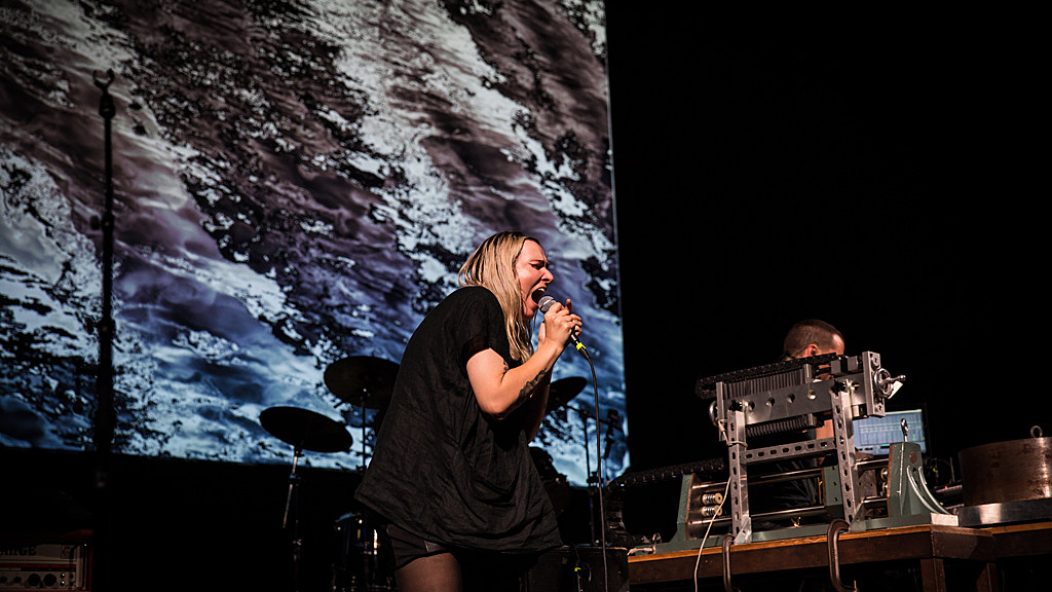
10 of the Heaviest Modern Bands Without Guitars
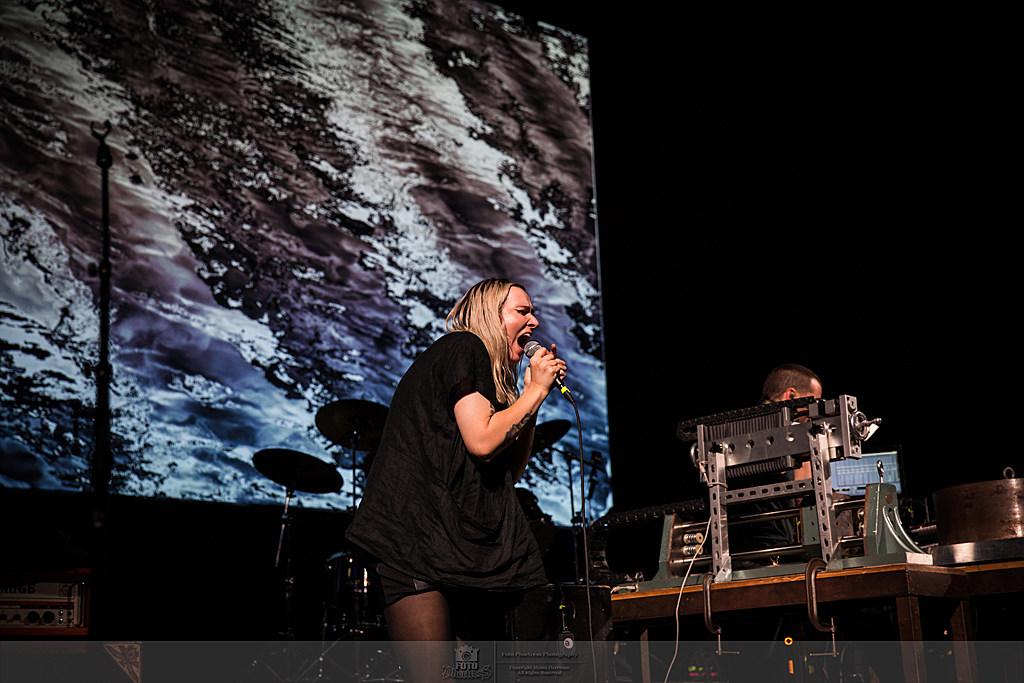
…
What exactly is it that makes music heavy? The most obvious answer to this question would be loud, distorted guitar lines, a constant in both pillars of the genre and deeper cuts. Such a simple explanation doesn’t seem right, though: We’ve all had the experience of hearing records or attending live shows that feel heavy as hell, but use synthesizers, saxophones or even found audio collages to create the sensation of heaviness.
For a broader definition of heavy music that can account for moments like these, let’s look at 10 artists who make music that feels heavy but don’t use any guitars at all.
A few traits — such as esoteric lyrical themes, dark aesthetic sensibilities, a preoccupation with the extreme ends of the audio spectrum, and unconventional song structures — pop up throughout the list. Noting such commonalities between these artists demonstrates that guitars are not necessarily required to make music feel heavy.
—Daniel Evans
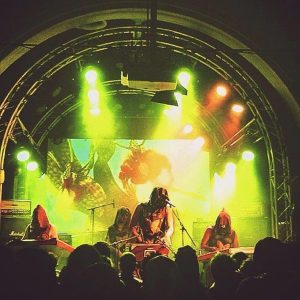
Botanist, who critics and journalists generally categorize as a black metal band, feature just about every “traditional” reference point for heaviness — other than guitars. The San Francisco, California, collective, who perform with drums, bass, harmonium, and hammered dulcimer, are an interesting jumping off point in the search for heavy bands that function without guitarists. Blast beat drum patterns, bizarre vocals, off-kilter song structures, and evocative harmonies all show up frequently in their music — see songs like the remarkably linear “Gleditsia”. Botanist’s music also focuses on noticeably obscure subject matter: the band’s official website includes a section entitled “Lore”, a thick mini-lexicon of terms like “Chlorophyllic Continuum, The” and “Veltheim Throne” that appear in their lyrics. As a whole, Botanist stands out as a band that few people would argue are not heavy despite their lack of guitars.
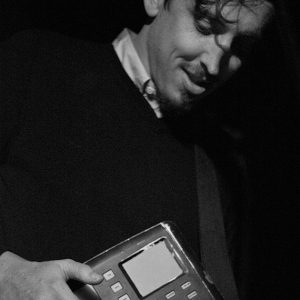
Relentlessly pessimistic lyrics, hard-hitting minor key melodies, disturbing album art all signify traditional heaviness in bands, and Wreck and Reference has all these markings. But the LA two-piece doesn’t need guitars to build a heavy atmosphere. They manage to do so with creepy electronics, savage drumming and spoken-word vocals. Though they have less sonically in common with metal than, say, Botanist (who at least use mic’d up string instruments to create distorted tones), they have shared the stage with bands like Sannhet, Bosse-de-Nage, and Pale Chalice. Wreck and Reference, despite their far-from-guitar instrumentation, fit right in with purveyors of contemporary heaviness.
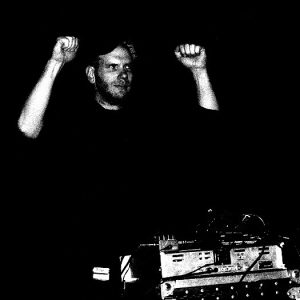
Kevin Drumm’s solo output began with an emphasis on using electric guitars in unfamiliar ways. He explored prepared guitar and the reimagination of guitar as a drone instrument. As his career has gone on, the Chicago musician moved on to laptops and analog synthesizers as his primary weapons of audio destruction. This shift away from guitars hasn’t made Drumm’s music any less heavy: releases with distinctly metal titles like Sheer Hellish Miasma and Imperial Distortion are chock-full of disturbing soundscapes, punishing repetition, and powerful tones vibrating in a manner that recall blast beats. Kevin Drumm’s post-guitar music is definitely a few steps away from your average metal band, but as his recordings — and especially his live performances — demonstrate, he’s as heavy as it gets.
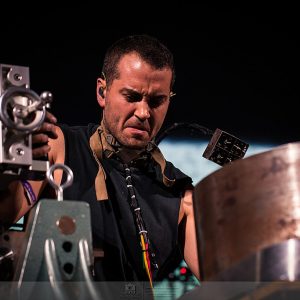
Many heavy bands share a penchant for writing songs based around riffs (though there are, of course, exceptions to this rule). Can artists that compose and perform without guitars still achieve th riffage? The music of Author and Punisher proves that this is a possibility. Tristan Shone’s one-man band mainly uses homemade machines to craft deeply pitched, harmonically straightforward motifs, but they’re quite riffy sounding. Shone’s distinctly DIY, solitary image puts him in a certain league of heavy musicians, too. Perhaps it’s no surprise that — despite his serious musical distance from guitar-based composition — he’s played in a number of mostly metal-exclusive capacities.
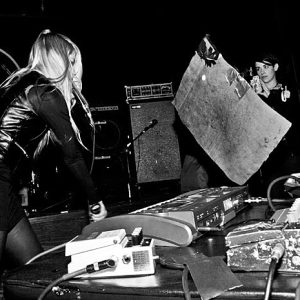
Another solo noise project that utilizes homemade instruments (as well as other musical tools), New York City’s Pharmakon — A.K.A. Margaret Chardiet — offers loud, confrontational music but simultaneously establishes more distance from the standard markings of metal that Drumm or Shone. Chadiet’s martial rhythms and atonal harmonies wouldn’t be especially out of place at a metal show, but other aspects of her musical personality display the fact that non-guitar acts don’t need to keep metal sensibilities to be super heavy. Her lyrics explore themes often ignored in heavy music, like bodily autonomy and patriarchal oppression. Chadiet’s live shows — where she has been known to claw at and scream in the faces of male audience members, going so far as to wrap male attendees in XLR cables — also take on a confrontational, performance art-esque atmosphere that would make “theatrical” bands like Watain blush.
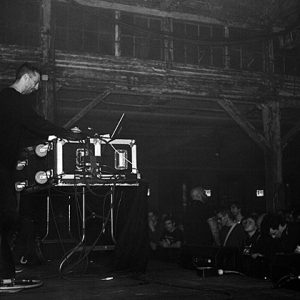
Montreal electronic musician Tim Hecker resides a step further away from metal archetypes, and his aesthetic isn’t especially dark or brutal. Where Pharmakon features disturbing artwork and album titles like Bestial Burden, Hecker’s personal sensibilities are more akin to post-rock and classical music than metal. However, his screeching treble leads, rumbling bass tones, tendency to fluctuate between consonance and dissonance and infamously loud live shows bely a commitment to heaviness beneath his relatively curated exterior.
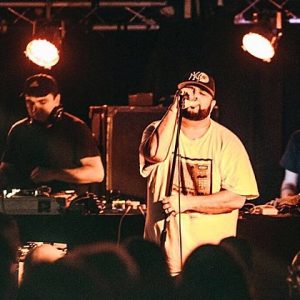
Dälek employs thick, noisy sounds in an entirely different context: hip-hop. The Newark, New Jersey, three-piece feature revolution-centric lyrics, layers of shoegazey noise, and disturbing artwork that could certainly show up on a metal album. They’ve also performed with the likes of Godflesh, the Melvins and Dillinger Escape Plan, as well as released music on legacy metal labels like Hydra Head and Profound Lore. However, the band says that they consider their music “purely hip-hop,” confirming that one more genre outside of metal can be a bastion of heaviness. It’s also worth remembering that the group features morbid, virtuosic lyrics with an anti-religious bent (“Deemed evil by those housed in church steeples / False prophets read backwards from broken tablets to the feeble” – “Distorted Prose”), and what’s heavier than that?
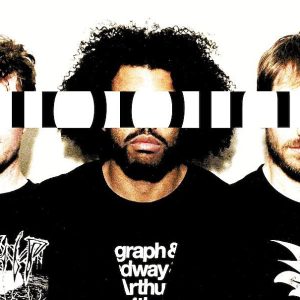
Dälek leads us right to clipping., another self-identified hip-hop act whose painful walls of feedback and violent lyrics are heavy in the traditional sense of the word. What’s amazing about the LA-based three-piece — who have gotten a great deal of press recently due to new tracks, and the fact that member Daveed Diggs was awarded a Grammy and a Tony for his role in smash hit musical ‘Hamilton’ — is the broad range of influences on display in their music. Songs like “Work Work” feel as related to sample-rap pioneers Public Enemy as, say, musique concrète. Indeed, clipping.’s sound seems to draw on everything from Atlanta mixtape rap to early Throbbing Gristle. This combination is a lethal one; live performances confirm that the trio offers sounds at least as intense as your average metal band. clipping.’s take on abrasive rap is certainly different than Dälek’s, but no less heavy.

In some sense, NYC’s Battle Trance is just about as far from traditional, guitar-based heavy music as we’ll go. A quartet composed of four tenor saxophonists, Battle Trance is generally identified as jazz or contemporary classical music. But I doubt your average metalhead would be especially thrown off by their song titles, album covers and, most importantly, their sonic content. The quartet’s half-hour-plus compositions rely on unique playing techniques — like harmonically close, vibrating dissonances and beating on the keys of the saxophone — to create massive audioscapes with sounds akin to blast beats. Who ever said artists from the jazz and classical world can’t be metal?
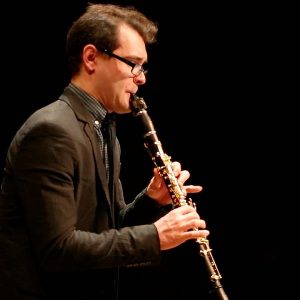
Lastly, we’ll survey the work of Gleb Kanasevich, both under his own name and as a variety of pseudonyms, such as un[KNWN] and Caleb Canatheviphth. Kanasevich has released covers of bands like Meshuggah, Necrophagist and Suffocation using not a single guitar — he does it with a goddamn clarinet. The composer-performer sits at an interesting crossroads between jazz, classical and metal. Despite the fact that Kanasevich is currently pursuing a PhD in composition and theory, it’s hard to argue with the heaviness of his absurdly fast, harmonically oppressive microgenre, which he calls claricybergrind.











